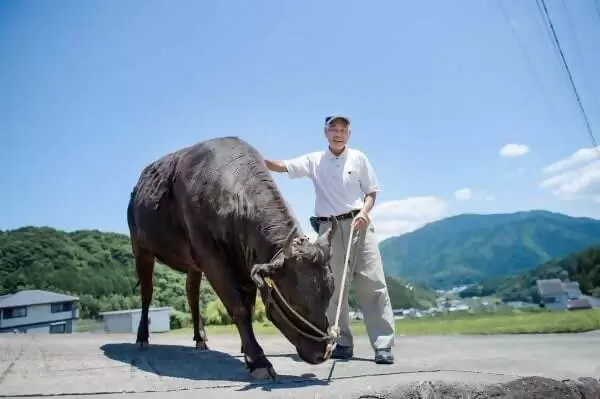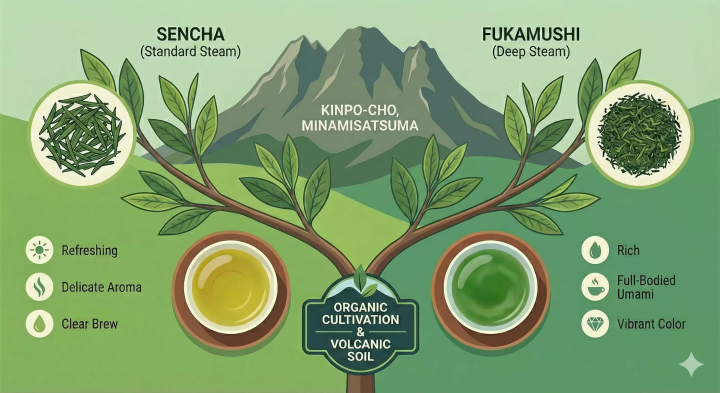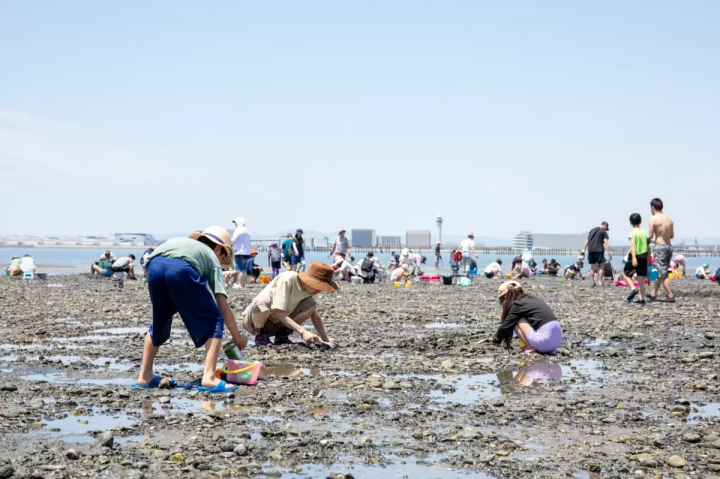Japan Public Holiday Calendar 2026-2027: Events, Travel Tips

Plan your trip with our 2026-2027 Japan public holiday calendar. Discover all 16 national holidays, tips to avoid Golden Week crowds, and days with free entry at museums and top attractions.
Japan's Public Holidays: Tips to Avoid the Crowds
Japan has 16 public holidays each year. Some holidays combine with the weekends, creating consecutive holidays such as Golden Week, which will fall between April 26 and May 6 in 2026.
These are peak times for domestic travel; most sightseeing areas and central shopping centers will be very crowded on these days. If your travels coincide with Japan's public holidays, make sure to book your flights, train tickets, and accommodation in advance - if possible, at least two months before departure.
Read on to learn about the public holidays in Japan in 2026 and 2027, their significance, and background, along with travel tips.
*Public holidays are subject to change based on the policies of the Japanese government.
Table of Contents
Japan Public Holiday Calendar 2026
Japan Public Holiday Calendar 2027
Public Holidays in Japan: Meaning and Cultural Background
2026 Calendar of Public Holidays and Consecutive Holidays

The dates marked in red are public holidays in 2026. Photo by Pixta
| Name of Holiday | 2026 | Long Weekend |
| New Year's Day | January 1 | January 1-3 |
| Coming of Age Day | January 12 | January 10-12 |
| National Foundation Day | February 11 | None |
| Emperor's Birthday | February 23 | February 21-23 |
| Spring Equinox Day | March 20 | March 20-22 |
|
Showa Day (GW) GW = Golden Week |
April 29 | May 2 - 6 *April 30, May 1, and 2 are not national holidays, but many Japanese take leave on these days |
| Constitution Memorial Day (GW) | May 3 | May 2 - 6 |
| Greenery Day (GW) | May 4 | May 2 - 6 |
| Children's Day (GW) | May 5 | May 2 - 6 |
| Marine Day | July 20 | July 18-20 |
| Mountain Day | August 11 | August 8-11 |
| Obon | Around August 13-16 | Not a national holiday, but many take leave during this time |
| Respect for the Aged Day | September 21 | September 19-23 |
| Autumnal Equinox Day | September 23 | September 19-23 |
| Sports Day | October 12 | October 10-12 |
| Culture Day | November 3 | None |
| Labor Thanksgiving Day | November 22 | November 21-23 |
2027 Calendar of Public Holidays and Consecutive Holidays
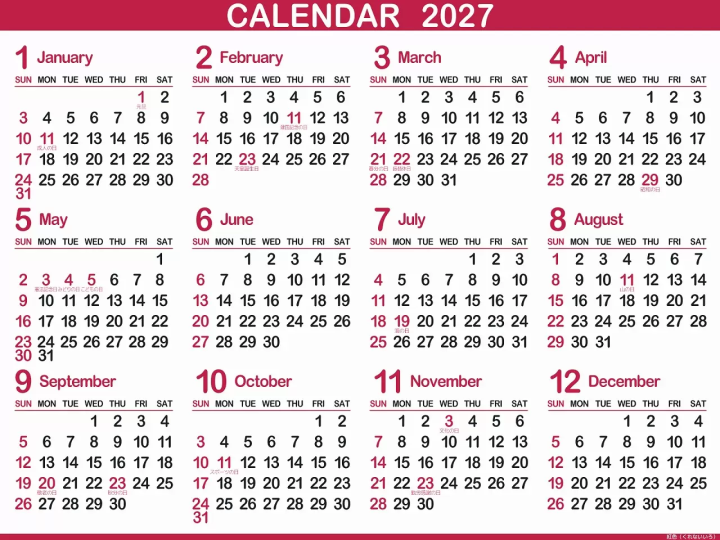
The dates marked in red are public holidays in 2027. Picture by Illust AC
| Name of the holiday | 2027 | Consecutive holiday period |
| New Year's Day | January 1 | January 1–3 |
| Coming of Age Day | January 11 | January 9–11 |
| National Foundation Day | February 11 | None |
| The Emperor's Birthday | February 23 | None |
| Vernal Equinox Day | March 21 | March 20–22 |
|
Showa Day (GW) GW = Golden Week |
April 29 | None |
| Constitution Memorial Day (GW) | May 3 | May 1–5 |
| Greenery Day (GW) | May 4 | May 1–5 |
| Children's Day (GW) | May 5 | May 1–5 |
| Marine Day | July 19 | July 17–19 |
| Mountain Day | August 11 | None |
| Obon | Around August 13–16 | Not a public holiday, but many people take time off |
| Respect for the Aged Day | September 20 | September 18–20 |
| Autumnal Equinox Day | September 23 | None |
| Sports Day | October 11 | October 9–11 |
| Culture Day | November 3 | None |
| Labor Thanksgiving Day | November 23 | None |
Public Holidays in Japan: Meaning and Cultural Background
1. New Year’s Day: January 1
2. Coming of Age Day: January 12 in 2026
3. National Foundation Day: February 11
4. The Emperor’s Birthday: February 23
5. Spring Equinox Day: March 20 in 2026
6. Showa Day: April 29
7. Constitution Memorial Day: May 3
8. Greenery Day: May 4
9. Children’s Day: May 5
10. Marine Day: July 20 in 2026
11. Mountain Day: August 11 in 2026
12. Obon: August 13 – 16
13. Respect for the Aged Day: September 21 in 2026
14. Autumn Equinox Day: September 23 in 2026
15. Tokyo Citizen’s Day: October 1
16. Sports Day: October 12 in 2026
17. Culture Day: November 3
18. Labor Thanksgiving Day: November 22 in 2026
19. New Year’s Holidays December 29 – January 3
Things to Know About Public Holidays in Japan
1. Some events and campaigns are only held during public holidays. For details, please read:
2. If a public holiday falls on a Sunday, the following Monday becomes a substitute public holiday. These substitute holidays tend to be busy, so please refer to the table above for dates to avoid crowds.
1. New Year’s Day – January 1
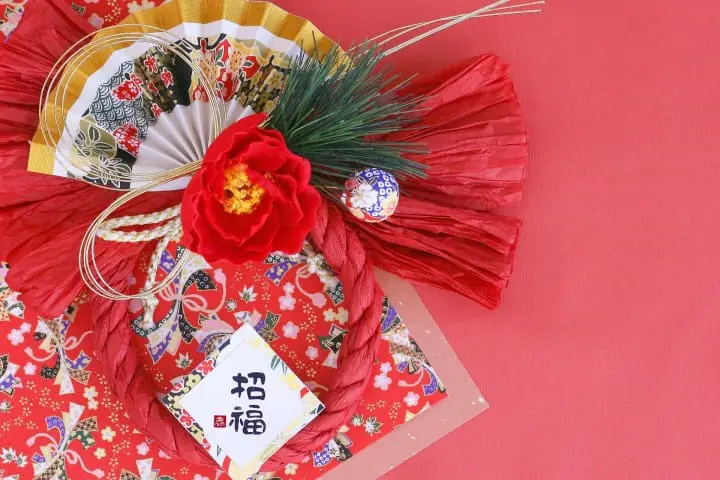
Japan does not celebrate the Lunar New Year but instead celebrates the New Year on January 1 with grand festivities.
Private businesses in shopping districts and other such areas will often close their shops from around January 1 to 3, so be sure to keep this fact in mind.
Famous shrines and temples will also have lines stretching their entrances to the main shrine for several hours due to people visiting for hatsumode, or their first visit of the year.
Facilities like Tokyo Skytree and Tokyo Tower hold special events for viewing the First Sunrise of the Year, which is first visible from higher altitudes. If you're in Japan for New Year's, do enjoy one of these special events for a memorable holiday.
Read also
2. Coming of Age Day – January 12 in 2026
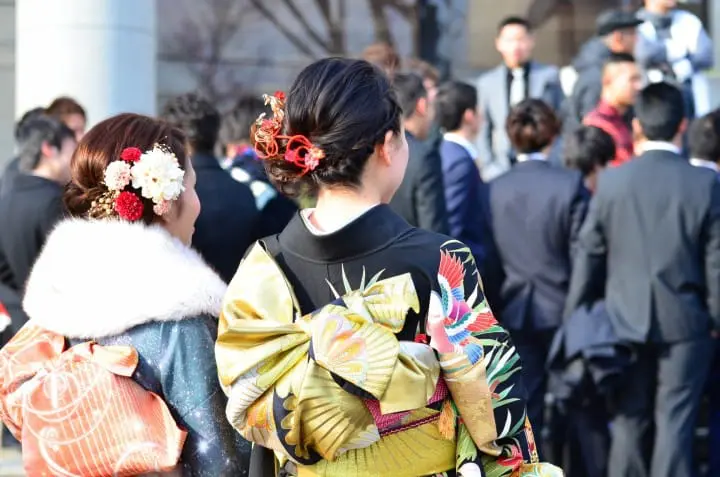
This is a day to congratulate those who have come of age that year and is held on the second Monday of January.
A coming of age ceremony is held in every municipality in Japan on this day. In Urayasu, Chiba, where Tokyo Disneyland is located, the coming of age ceremony is held inside the park. Be aware of this fact as the park will be even more crowded than usual.
3. National Foundation Day – February 11
This holiday is annually held on February 11 to celebrate the founding of Japan. On this day, Meiji Shrine, located on the right side of Harajuku Station, holds a parade in celebration. Parade spectators will gather along the parade’s route, so this area is expected to be crowded.
Origin
This was the day Emperor Jimmu, the first Emperor of Japan, ascended to the throne as recorded in Japanese mythology.
4. The Emperor’s Birthday – February 23
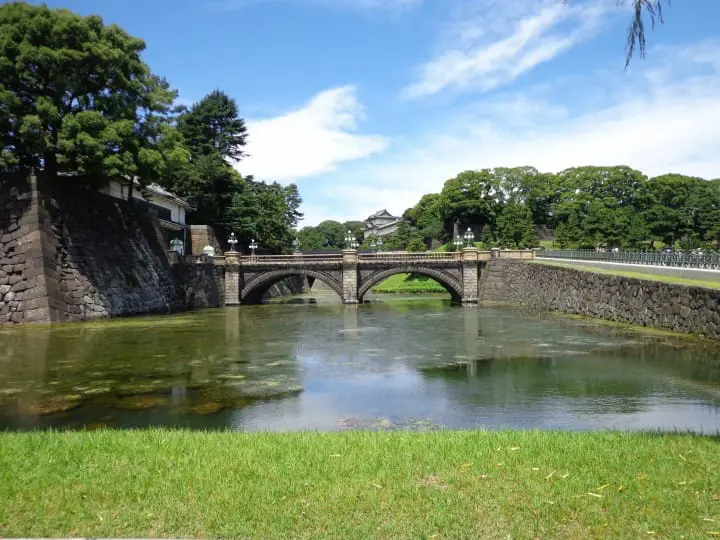
This holiday is the date of the present Emperor’s birthday. The date was changed from December 23 to February 23 with the new Reiwa Emperor’s accession to the throne in 2019.
On this day, many people gather at the Imperial Palace in Chiyoda, Tokyo, to celebrate the Emperor’s birthday and offer their congratulatory wishes. Traffic restrictions may be put into place in the surrounding area, so caution is necessary even if you will not be visiting the Palace.
5. Spring Equinox Day: March 20 in 2026
Due to Japan’s location in the northern hemisphere, days become longer as summer approaches while nights become long when winter approaches.
The Spring Equinox, or Vernal Equinox Day, marks the change between seasons when there are around equal lengths of sunlight and darkness. The exact date is undetermined as it is influenced by the movement of the sun and earth, resulting in slightly varying dates each year.
Although not sightseeing-related, Japanese people have a custom of visiting their ancestral graves and eating a type of wagashi called botamochi (a red bean paste-covered rice cake) during this holiday. Botamochi is sold in supermarkets and shopping districts.
During this season, events are hosted at famous plum blossom spots throughout the country. The cherry blossoms in central Japan, including Tokyo, Kyoto, and Osaka, start appearing shortly after the Spring Equinox.
Read also
6. Showa Day (April 29): The Beginning of Golden Week

Showa is the name of an era in Japan. Showa Day was established as a day to reflect back on that time period. On this day, Showa Kinen Park in Tachikawa, Tokyo is opened to the public for free. Please keep this in mind as the park will be crowded.
In 2026, Golden Week will span from April 29 (Wednesday) to May 6 (Wednesday). Many Japanese will also take off the two middle days—April 30 and May 1, in order to enjoy 8 consecutive holidays.
Popular travel destinations in Japan will be heavily crowded during this time, so please take extra care if you’re traveling to Japan during Golden Week.
Origin
This holiday was the date of the birthday of Emperor Showa, the 124th Emperor of Japan, and was originally celebrated as the Emperor’s Birthday. After his passing, the day was celebrated as Greenery Day until 2006.
Read also
7. Constitution Memorial Day – May 3

This holiday is part of the period known as Golden Week. As a result, various events are held throughout the country on this date. All types of sightseeing areas and public transportation systems, such as the shinkansen (bullet train) and highways, will be extremely crowded at this time.
If there are no events being held that you wish to attend, then it is best to avoid this period.
Origin
This holiday celebrates the enactment of the Constitution of Japan on May 3, 1947.
8. Greenery Day – May 4
This holiday was established with the purpose of “nurturing a richness of spirit that is intimate and grateful to the blessings of nature” and is one of the holidays that make up Golden Week, along with Constitution Memorial Day or Children’s Day.
As the purpose of the holiday is to appreciate nature, some zoos and city gardens will be open to the public for free.
*A list of facilities in Tokyo that have free entry on Greenery Day can be found here (Japanese).
You can read more information on the facilities that have free entry on Greenery Day below.
Read also
9. Children’s Day – May 5
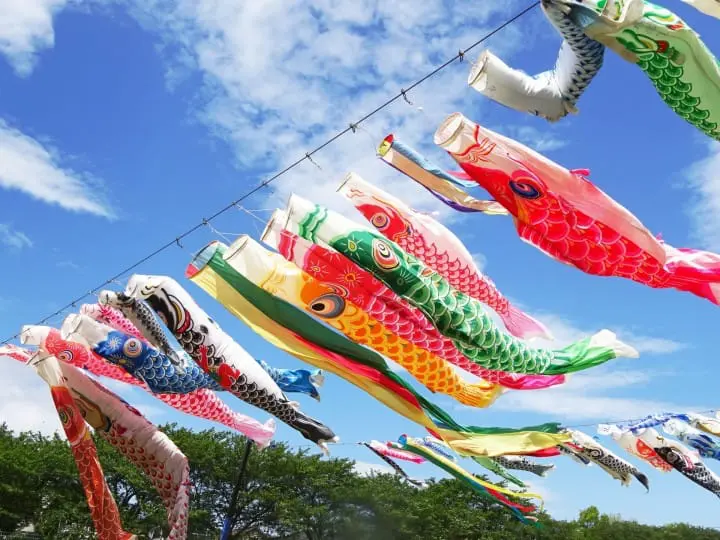
Children's Day is a holiday when people honor the individuality of children, wish for their happiness, and express gratitude towards mothers. It is also a part of Golden Week.
On this day, facilities for children such as city zoos will have free or discounted entry fees. If you’ll be traveling with children, we suggest confirming this information beforehand.
Cultural practices celebrating and wishing for the growth of children, such as the hanging of carp banners, have been a long-held tradition in Japan. Other traditions include the practice of eating wagashi like kashiwa mochi (oak leaf-wrapped rice cakes) or chimaki (bamboo leaf-wrapped cakes) on this day.
Origin
This holiday was derived from a Boy’s Day celebration, one of five seasonal festivals that signify the change of the seasons. From around the twelfth century onwards, it became a seasonal festival celebrating the growth of children in general.
Read also
10. Marine Day: July 20 in 2026
This holiday usually takes place every third Monday of July and is when we show gratitude for the blessings of the ocean while praying for the prosperity of the maritime nation of Japan. In 2026, Marine Day will be on July 20.
Just as its name describes, events centered around the ocean are held throughout the country. Particularly, the Maritime Self Defense Force bases across Japan (Yokosuka, Sasebo, Kure, Maizuru, Ominato, and other locations) will be open to the general public on this day (does not include all bases nor does it occur every year).
As Nara is a landlocked prefecture in Japan, the “Nara Mountain and River Day” takes place on Marine Day (it also on the third Monday of July).
Origin
The holiday is associated with the date Emperor Meiji returned to Yokohama Port by steamship during his cruise around Tohoku in 1876.
11. Mountain Day: August 11 in 2026
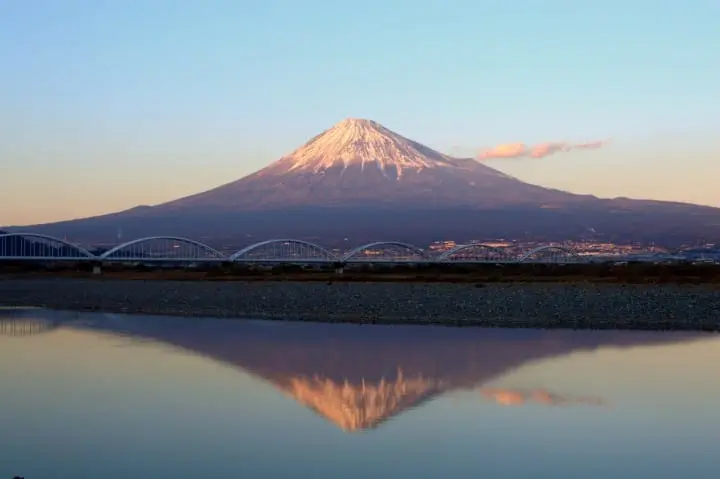
Established in 2014, this is a new holiday, first celebrated in 2016.
The holiday was created to provide people with an opportunity to familiarize themselves with the mountains and appreciate their important role in Japan and the ecosystem here.
In 2026, Mountain Day will be observed on August 11.
12. Obon – Around August 13 – 16
Although Obon is not a public holiday, many Japanese people take vacation time to return to their hometowns during this period. Much like Golden Week or the New Year’s holiday, public transportation and highways will be highly congested over these series of days.
The date for Obon is not clearly defined and varies by region. Many people will be taking holidays around August 15 and include the weekends, too, so be sure to double-check your travel dates with a calendar.
13. Respect for the Aged Day: September 21 in 2026
The third Monday of September every year is Respect for the Aged Day. As it is a day to give respect and to celebrate the longevity of the elderly, seniors over 65 years of age (*in some cases 60) are given free entry to national parks and zoos.
The week from September 15 to September 21 is considered Senior Week, and the following public facilities in Tokyo offer free admission to seniors during this interval: Ueno Zoo, Jindai Botanical Gardens, Hama-rikyu Gardens, Rikugien Garden, Koishikawa Korakuen Garden (near Tokyo Dome), the Former Iwasaki Residence Garden, and others.
The following facilities offer free admission to seniors on September 21 only: Edo-Tokyo Open-Air Architectural Museum, Tokyo Garden Art Museum, the Tokyo Photography Museum, the Tokyo Contemporary Art Museum, Miraikan - The National Museum of Emerging Science and Innovation, the Tokyo National Museum, Showa Kinen Park (Tachikawa), and the Chihiro Art Museum.
14. Autumn Equinox Day: September 23 in 2026
Autumn Equinox Day is the opposite of Vernal Equinox Day, and, similarly, Japanese people will visit their family graves during this time.
Many holidays overlap with each other in September, resulting in the name "Silver Week," similar to May’s Golden Week.
15. Tokyo Citizens’ Day – October 1

Although it is not a public holiday, we are introducing this holiday as it celebrates the Tokyo area, where many international travelers visit. On this day, several facilities in the city will have free entry, which means you can expect it to be crowded.
16. Sports Day: October 12 in 2026
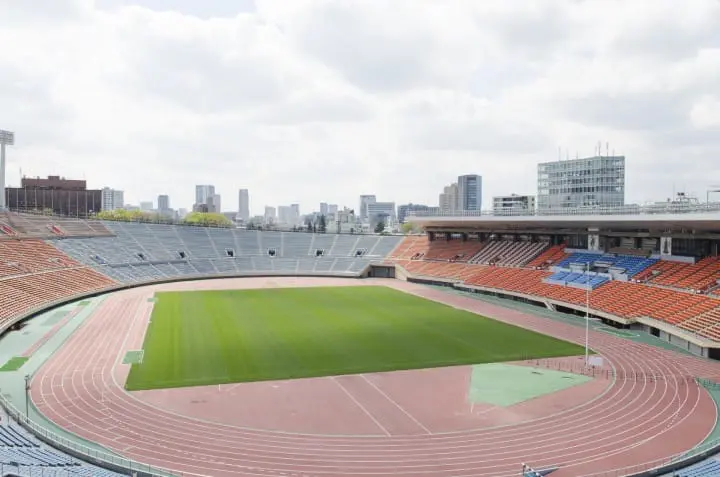
This holiday is celebrated to foster a healthy mind and body by encouraging citizens to try sports. On this day, sports-related events are held throughout the country at gymnasiums and sports grounds.
The holiday is usually observed on the second Monday of October. In 2026, Sports Day falls on October 12 (Monday).
Origin
The holiday commemorates the day of the opening ceremonies of the 1964 Tokyo Olympics (October 10) and was originally celebrated on that same day. In 2020, the holiday was renamed from "Health and Sports Day" to "Sports Day."
17. Culture Day – November 3
Culture Day is held annually on November 3 to promote culture while respecting freedom and peace. Art festivals sponsored by the Agency for Cultural Affairs are held around this time. Admission will be free at some museums and galleries, and special events will also be held.
A unique event is the Culture Festival held annually on this day at the Fuchu Prison in Tokyo. It may seem slightly frightening to go to a festival at a prison, but the event is very safe and also attended by the locals. At the festival, you can eat meals made at the prison and purchase products made by the inmates.
Origin
The holiday is associated with the official proclamation of the Constitution of Japan on November 3, 1946. This constitution is the same constitution memorialized on Constitution Memorial Day on May 3.
18. Labor Thanksgiving Day: November 22 in 2026
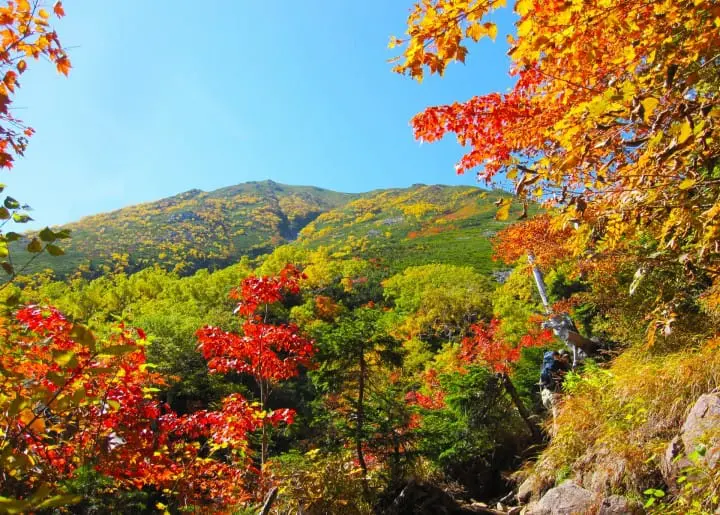
This is a holiday when labor and production are esteemed and celebrated. During this period, famous fall foliage spots are very crowded.
Origin
The holiday is related to the Harvest Festival, when the Emperor would perform a ceremonial offering of newly-harvested rice to celebrate the abundant harvest. This holiday is uniquely Japanese, as a country that has eaten rice as a staple food since ancient times.
Read also
19. New Year’s Holidays: December 29 - January 3
Although it is not a public holiday, the New Year’s holiday period from December 28 to January 4 often brings crowds to shopping centers and public transportation across Japan.
Reservations for public transportation are difficult to make due to the influx of people returning home for the new year. Shopping districts and centers are also packed with crowds of people cleaning and making preparations for the new year.
FAQ
How many public holidays does Japan have?
Japan has 16 national holidays, which are regulated by the Public Holiday Law. These holidays include both traditional events, such as New Year's Day and Coming of Age Day, as well as modern observances like Health and Sports Day and the Emperor's Birthday.
Are shops closed on public holidays in Japan?
Public holidays in Japan do not universally require shops and businesses to close, so many remain open. However, certain businesses, particularly government offices, banks, and some smaller shops and restaurants, may close or have modified hours on public holidays. Additionally, some larger retailers and department stores may choose to be open to accommodate holiday shoppers. It's always best to confirm the operating hours of specific shops and businesses in advance, especially if you plan to visit during a public holiday.
What is the biggest public holiday in Japan?
The biggest public holiday in Japan is the New Year's holiday. This holiday is a significant time for family gatherings, traditional celebrations, and the observance of customs and rituals. Many people in Japan take several days off around the New Year to celebrate with family and participate in traditional activities, such as visiting shrines and temples, enjoying special meals, and engaging in activities that symbolize a fresh start with the coming of the new year.
What is the Golden Week holiday in Japan?
Golden Week is a series of four national holidays in Japan that occur within a seven-day period around the beginning of May. The holidays are Showa Day (April 29), Constitution Memorial Day (May 3), Greenery Day (May 4), and Children's Day (May 5). Golden Week is one of the busiest holiday seasons in Japan, and many people take time off from work to travel or spend time with family. As a result, transportation, accommodations, and popular tourist sites can be quite crowded during this time.
Why is it important to know about public holidays in Japan?
Knowing about public holidays in Japan is important if you plan to visit Japan. Being aware of public holidays can help you plan your trip and avoid potential disruptions in transportation, closures of businesses, and crowded tourist attractions. Additionally, understanding these holidays can provide insight into Japanese culture and traditions, allowing you to potentially participate in local festivities and observe the country's customs.
Know the Holidays and Travel Smart
Many people are probably surprised at the number of holidays in Japan.
If you’ll be sightseeing in Japan, check whether or not your vacation will overlap with a holiday. If it does fall on a holiday, be sure to consider visiting a destination that will be relatively uncrowded.
By making preparations beforehand, you can have a smooth and pleasant travel around Japan.
This is the official account of MATCHA's editorial department. Our articles feature useful travel information for visitors to Japan, from how-to guides to recommended places to visit.

























































![[Kagoshima] Overcoming 12 Years of Hardship: Walking through Minamisatsuma City, the sacred land where the monk Ganjin landed](https://resources.matcha-jp.com/resize/720x2000/2026/02/21-259481.webp)
